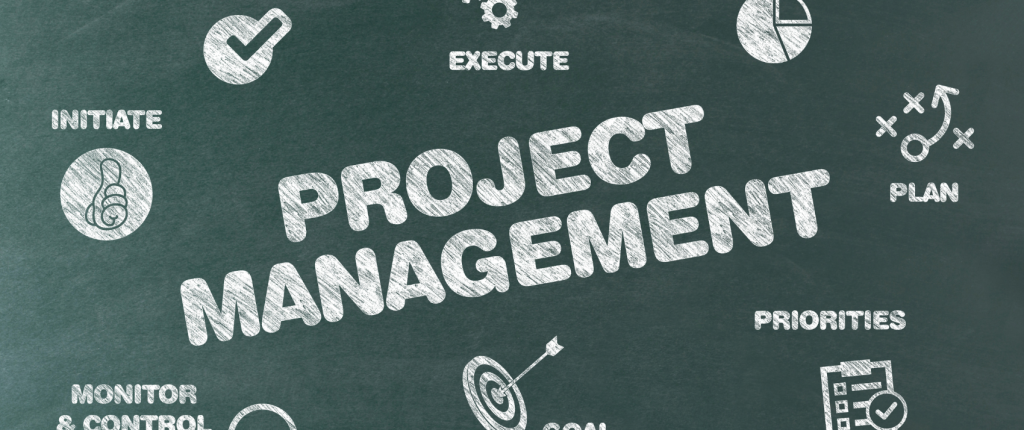Trying to become a better manager is a lifelong task. Living in the time of Covid-19 and the Fourth Industrial Revolution has placed unprecedented stress on managers. Our work lives rush headlong at a frantic pace, and we mostly seem to be playing catchup.
But there are some time-tested actions we can use to create the sort of environment in which teams want to deliver their best. Becoming a better manager doesn’t happen overnight, it’s a long-term process of implementing simple tips and changing your current habits.
It‘s important to remember that every company has different management styles but there are some general tips that can help improve daily interactions and relationships between employees and managers.
Let’s start with the essence of management. Management responsibilities can be split into three categories:
Managing processes: You’re responsible for conceptualising and implementing the processes and workflows that must take place for the organisation to meet its goals. You provide the link between the strategy of the organisation and your team. You make the strategy understandable, and you help your team build its achievement into their performance activities.
Managing people: You oversee the work of your team – explaining goals, monitoring performance, providing feedback, and unclogging problems. You help your team to satisfactorily complete the tasks connected to specific outcomes, metrics, or goals.
Managing expectations: You manage the expectations of your teamwork content, career aspirations, promotions and rewards. You also have to manage the expectations of the C-suite – what can be realistically achieved, budgetary constraints, and target achievement.
Now let’s delve into how we can improve our performance across each of these categories.
- Be a leader, not just a manager
Be a leader, not just a manager. Provide clear direction and goals for your team as a whole and for everyone in the team. Show your team how to be successful in your organisation. Don’t be a grumpy fault-finder. When someone underperforms, help them to get back on track in a positive manner, without threats.
- Know your team
Get to know your employees and what’s important in their lives. Get to know each team member both on a personal and professional level. Know their career goals, and build their experiences into your work plans. And also know their interests and passions. We are whole people; we don’t leave half of us behind when we arrive at work.
- Communicate effectively
Sometimes there isn’t time to communicate (or so you think), and at other times we assume that everybody has the same understanding of an event or task. Sometimes you will have to communicate with the whole team, and sometimes you will communicate one-on-one. Share pertinent information. Explain the big picture behind a new initiative or new task set. Build communication “events” into your workweek.
- Listen attentively
Overtalking in meetings can be a big problem. One person will be finishing a comment, and another shoots off with an unrelated suggestion.
This is where you have to protect the quieter members of your team from the boisterous over-talkers. Otherwise, good ideas will go to waste, and your team will feel undervalued, as the noisy ones get the most attention.
Listen to your employees as much as possible. If an employee comes to you with an idea or concern, try to make time and give your full attention to the issue.
- Motivate
Motivation is important. But be selective. A general exhortation to work hard will be ineffective. Also, don’t confuse long hours with hard work – they are not the same. Be a motivator. Encourage employees to achieve goals and be efficient in their use of time and resources.
- Improve
Don’t forget about yourself and your personal development needs. Discuss your career and learning path with your manager. Volunteer to head new projects. Improve yourself. Ask for honest feedback and commit to improving every day.
- Acknowledge success
Celebration lifts the spirits. Recognise, both publicly and privately, the achievements of your team. Be even-handed. Attune yourself to see the positives in your employees and their work. Don’t focus on what’s missing or what your team isn’t doing but rather on their successes.
- Be human
You are human and you make mistakes. Some things you do well, and others, not so well. Admit your mistakes, ask for advice when needed and let your team see that you’re just as human as they are. You’re in that job because of the things you are good at.
- Friends
This is a difficult one. On the one hand, you don’t want to be remote and stand-offish. But on the other hand, you are the manager and you are not a buddy. Your team should know that you are the authority, but you can chat with them, have fun with them and make your organisation a great place to be.
- Lead by example
Being a manager is not a matter of sitting back and telling others what to do. Sometimes you have to get your hands dirty in operations. Your team pays attention to your words and actions. You’ll have a greater impact by being a role model. Make sure you operate with integrity and ethics in the workplace. Act the way that you would like your staff to act.
In conclusion
You can’t learn management from a book or a blog. You need real, hands-on experience and on-the-job training in the workplace. Time spent in a managerial position will allow you to gain the experience you will need to be a successful manager.
But gaining such experience takes time. You can short-circuit some of the learning time by studying a suitable course. In that way, you will learn the theory and understand the practice of good management. It will help you to leapfrog into higher management positions.
Related Posts: 10 Great Strategists









